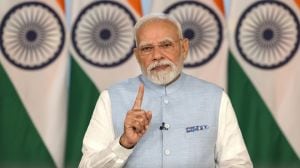The Great Game, In Many Parts
Jagat Singh Mehta has occupied a unique place in Indian public life for many years. One of independent India’s very first foreign servi...

Jagat Singh Mehta has occupied a unique place in Indian public life for many years. One of independent India’s very first foreign service officers (after a wartime career in the Indian navy), he worked closely with Nehru and served with distinction in the MEA, concluding his first, official, career as foreign secretary from 1976 to 1979.
Subsequently Mehta alternated between a major volunteer programme in Rajasthan and academic appointments, most notably in the United States. While not “pro-American”, his realistic assessment of the US relevance and affinity to India anticipated the sea-change in Indian-American relations. This second career also saw the emergence of a distinguished writer and essayist. This book reprints Mehta’s writings on Afghanistan that were written over the last twenty years (framed by a new introduction and conclusion).This is the first book that Mehta has written, although at least two more are in the works.
| The March of Folly in afghanistan: 1978-2001 By Jagat S. Mehta Manohar, price: Rs 450 |
The significance of this book is two-fold. First, it contains a valuable series of analytical papers and essays on the Afghan problem. Mehta had to deal with the first coup in Afghanistan when he was foreign secretary, and he subsequently followed developments there for three decades as a private citizen. The book’s subtitle hints at his basic argument. It is derived from Barbara Tuchman’s March of Folly, a study of the origins of World War I. Mehta apportions responsibility for the Afghan tragedy among all of the major players: the Soviets, the Americans, Pakistan, the Afghans and, not least, India.
Each pursued short-term goals and narrow national interests, the end result being a calamity for Afghanistan, the weakening of Pakistan, a defeat for the former Soviet Union, and, ultimately, the coming together of radical Islamic fundamentalists that has wounded the US. India was also diminished by its opportunistic role in Afghanistan — so bent on encircling the Pakistanis and not alienating the Soviets, India’s policy further detached it from the rest of the world and in the end did not advance any important Indian interests.
Now, Mehta believes, the old antagonisms have (mostly) faded away, and a clear-headed judgement of the stakes in Afghanistan might permit the major powers to work together to settle that unfortunate country and perhaps address their own larger rivalries. Nowhere is this more important than the India-Pakistan relationship; his conclusion, written as the recent crisis was getting underway, still holds out the hope that India and Pakistan can come to an agreed upon policy in Afghanistan, and even use the reconstruction of Afghanistan to build new and more durable ties between each other.
The other, and perhaps more remarkable, dimension of this volume is how it reveals a sharp and humane intelligence at work. While repetitive in places, the inconsistencies and misjudgements of a perishable op-ed piece or essay are important in understanding the thinking of a statesman. Mehta is not perfect, but the book allows the reader to understand how even the best mind, with the best information, can make slight misjudgements or miscalculations, and Mehta himself notes these and explains why he, or others, misjudged the Afghan situation at various critical moments.
Also admirable is Mehta’s refusal to submit to defeatism or the cynicism that seems to pass for realism in the field of international politics. He retains his belief that rational men (and women) can discover and implement solutions that maximise their own core values and interests without damaging the vital interests of others — but the book demonstrates how difficult it is to get it right all the time, and how much more difficult it is to persuade distracted or ideologically driven policymakers that the course they are pursuing will lead to disaster.
Thus, Mehta’s book belongs in the hands of the student of statecraft, not merely the Afghan or foreign policy specialist. The young scholar will learn a great deal about the substance of the issues that are embedded in Afghanistan (for India, these include Pakistan, but also the wider relationship with major powers). The newly-retired government official, contemplating a post-service public career, will learn that Mehta has set a very high standard for the memoir-essayist. In the end truth and honesty will always trump the self-righteous and self-serving.
Photos





- 01
- 02
- 03
- 04
- 05

























